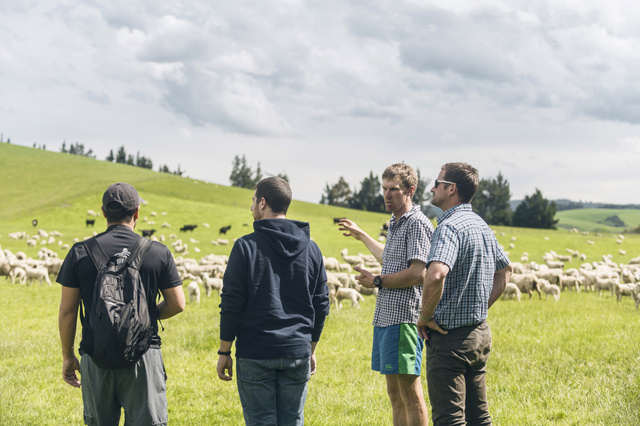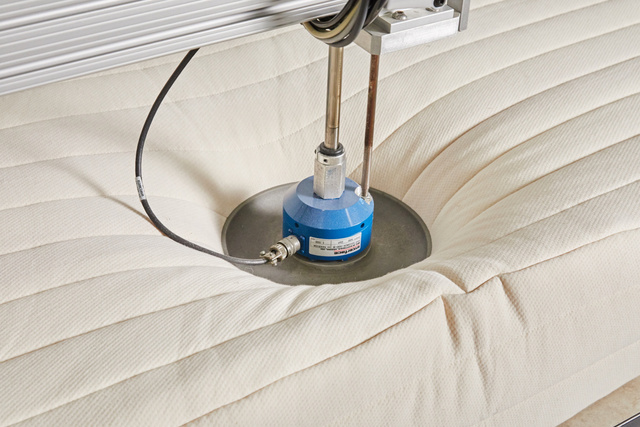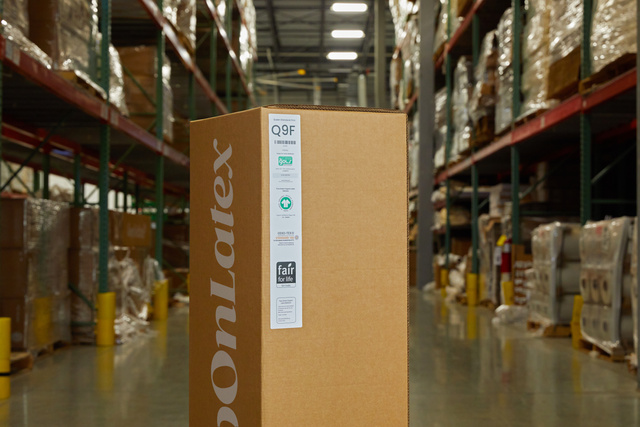Fair Trade and the Fair for Life Certification
In 2020, we became fair trade certified by Fair for Life. Find out what fair trade is and why it's important to us.
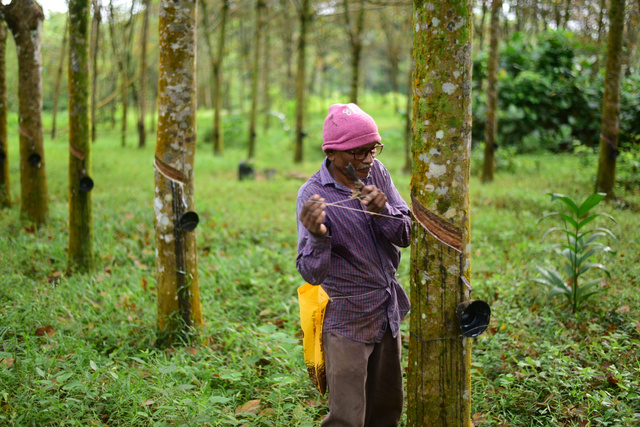
Why Fair Trade Matters
As consumers, we have seemingly endless possibilities and choices regarding what products to buy. The globalization of trading and increasingly complex supply chains have made it difficult to know where the products we purchase come from and who all was involved in their production. Goods once purchased directly from suppliers, like farmers, seamstresses, and craftsmen, are now exchanged through numerous hands to be grown, processed, manufactured, packaged, and eventually sold to consumers. This trading process can make it challenging to track workers vulnerable to underpayment, unsafe work conditions, exploitation, and discrimination.
Fair trade certifications can be thought of as a response to the inequalities rooted in international trade. There are numerous certifications and labels annotating products' fair production processes, including social, environmental, and ethical considerations. However, understanding what these certifications mean isn't always easy, as each certification has varying standards.
When Sleep On Latex first considered becoming fair trade certified, our goals were to find a certificate with high environmental and ethical standards to highlight our company's values to our customers and appeal to their purchasing power.
A Brief History of Fair Trade
The desire for ethically sourced goods is not new, and the fair-trade movement we know today is embedded in history. In 1827, Free Produce Society led a boycott of slave-derived goods. In 1897, The Salvation Army launched a tea company, pioneering a fair-trade model that paid fair prices to farmers. These early initiatives evolved in the years following WWII, when trading and traveling across borders became easier. Ten Thousand Villages, a nonprofit organization, spearheaded today's international fair-trade movement in 1946. They started by selling embroidery pieces in the United States that were handmade by women living in poverty throughout Puerto Rico. Ten Thousand Villages ensured these women received the profits of their needlework to use as they wanted to help themselves and their communities. This model gained traction, and the first fair trade shop was opened in 1958.
As these small shops began to open throughout the developed world, non-governmental organizations (NGOs) also began working to connect producers with buyers willing to provide proper compensation for their goods. The first fair trade NGO was International Fair Trade Association (IFTA), now known as the World Fair Trade Organization (WFTO). They were the first to establish fair trade labels, making selling items outside of fair trade specialty shops easier. Today, in the United States, there are several widely recognized fair trade certifications and designations.
Our Certification
Sleep On Latex is a company that values every worker in our supply chain, and we wanted to find a certification that would best support the farmers and workers who make our products possible. After reviewing numerous fair trade certifications, we found Fair for Life to have the most stringent standards and enforcement.
Fair for Life differs from other fair trade certifications. With Fair for Life, every step of the production process can be certified, not just finished product in addition to becoming compliant with Fair for Life in Sri Lanka, we also made changes to benefit our employees in the United States. Meanwhile, many other certifications only certify part of the supply chain.
Another notable requirement of Fair for Life is the prioritization of purchasing from smaller independent farms, also referred to as "smallholders." Smallholders are often working with less capital, making them vulnerable to underpayment. Fair for Life monitors trade agreements between smallholders and certified companies to ensure they receive a fair price for their goods. They also require that a certain percentage of sourcing comes from smallholders.
Beyond protecting smallholders, Fair for Life also sets high standards for workers' rights, including the right to collective bargaining, fair pay, and a discrimination-free workplace. One of the requirements we are passionate about is the creation of development funds for farmers and farmworkers. This means when we purchase latex from rubber tree farms, a percentage of that purchase goes back to a cooperative of farmers and workers to use as they see fit to better their community and working conditions.
Since we utilize organic materials in our products, Fair for Life's required premium on organic goods also appealed to us. These monetary incentives for organic agriculture are put in place to encourage more organic production by assuring farmers proper compensation for their efforts. Organic farming has many benefits, including reducing pollution and conserving water and energy.
For Fair for Life certified companies to stay compliant, an annual audit is completed, and a score from 1-100 is given. This yearly review promotes a culture of advancement and the opportunity to continuously improve. Our first audit in 2020 yielded Sleep On Latex a score of 87.9 out of the 100 possible points. A year later, our score went up to 89, and our latest score was 91. We will continue to look for ways to improve how we do business and empower workers throughout our supply chain. To see our full score, visit our page on the Fair for Life website.
The Fair for Life Development Fund
The development fund we have established for our producers has already directly impacted their work and communities. When the fund was established in 2020, workers and farmers from our smallholder sourcing came together to create a cooperative. Together, they agree on projects that improve their communities and their ability to work.
Today, the cooperative has already finished its first projects. Using money from the development fund, tappers and farmers purchased rain guards which attached to the rubber trees. This allows workers to harvest latex even when it is raining. The cooperative has also completed the building of a retaining wall near a community center and a Pagoda in a temple. The cooperative has begun work on several projects to improve access roads used by tappers commuting to work. The improved roads also increase access to emergency healthcare and ease children's journey to the local schoolhouse. Additionally, the cooperative has approved several future projects, including more access roads, community centers, and a medical center. These projects are made possible by fair trade.
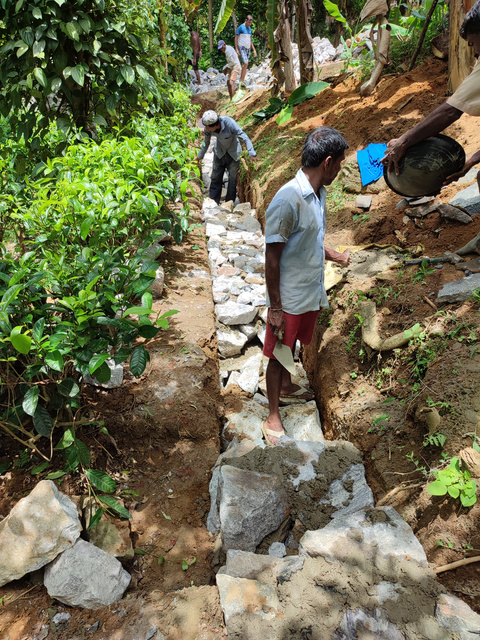

Since our purchasing of latex is consistent, so is our contribution to the development fund, making it a sustainable fund that the latex producers can rely on. The fund has become an excellent way for us to put the power of fair trade into the hands of the farmers and agricultural workers.
Not All Certifications are the Same
Fair trade certifications aren't perfect. Some certifications lack proper enforcement of their standards, meaning companies can take advantage of the label without necessarily offering all the benefits it promises. Some fair trade product prices are significantly higher than their non-fair trade counterparts, but the extra profit may not always make it back to the supply chain workers and smallholders. Likewise, international and local governments may have much lower standards than the fair trade certifications imposed requirements, especially regarding worker's rights. This means fair trade farmers can experience higher costs to operate than those not involved with fair trade, and they may receive little to no assistance from their local governments to do so.
Through requirements like the development fund and premiums on organic goods, we felt Fair for Life would have the most significant impact on our latex farmers and workers. That said, we believe a healthy questioning of labels and certifications can help consumers and companies make better purchasing and production decisions. We are always questioning and further exploring the certifications we see and encourage our customers to do the same. We've found that fair trade certifications aren't all created equally, but most certified products are doing more for workers than their non-certified counterparts. As consumers, our power to choose which products to purchase is a small but often effective way to improve the lives of others.
To learn more, visit Ten Thousand Villages, the history of fair trade, and the international guide to fair trade labels.
